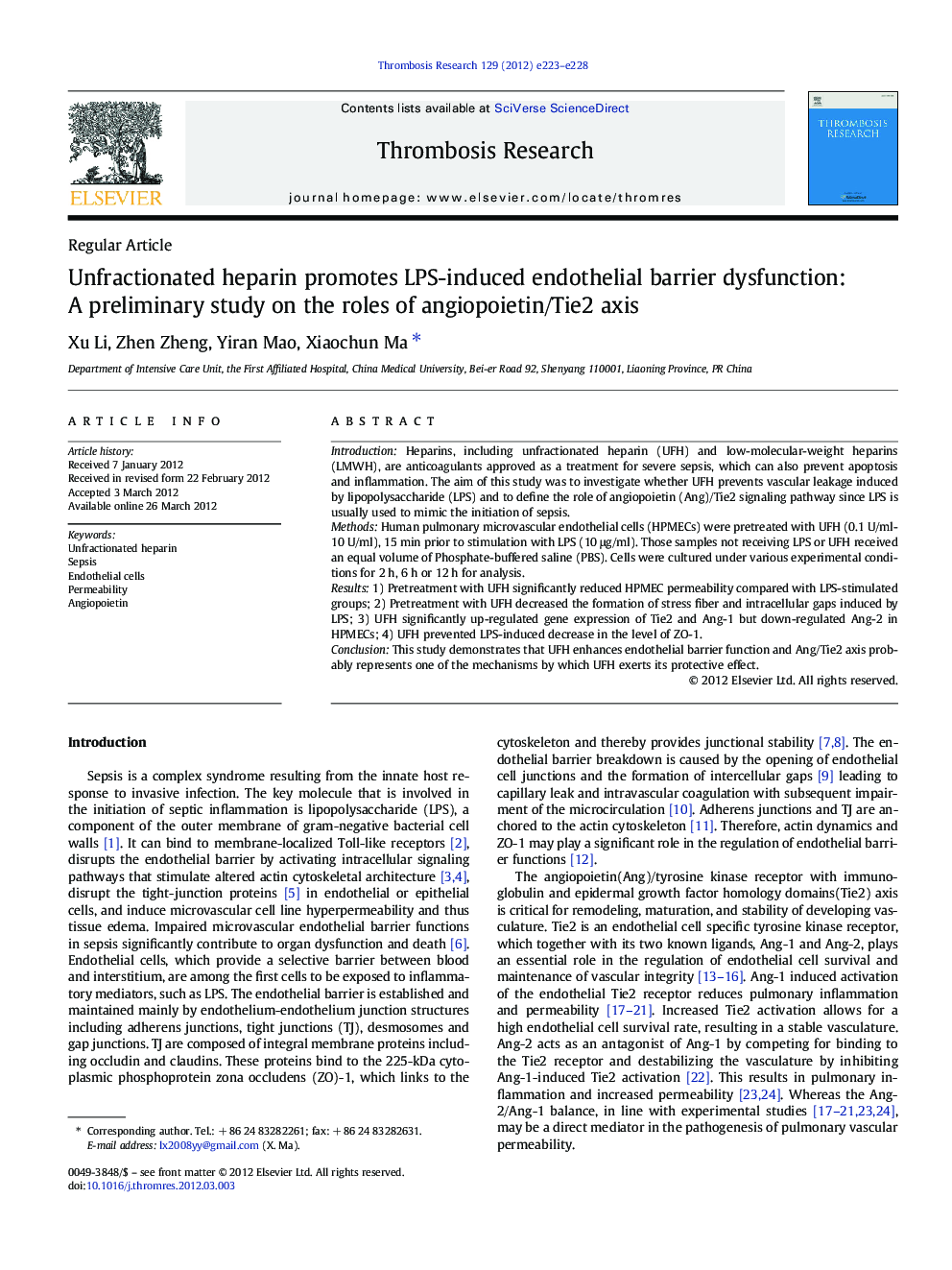| Article ID | Journal | Published Year | Pages | File Type |
|---|---|---|---|---|
| 6003373 | Thrombosis Research | 2012 | 6 Pages |
IntroductionHeparins, including unfractionated heparin (UFH) and low-molecular-weight heparins (LMWH), are anticoagulants approved as a treatment for severe sepsis, which can also prevent apoptosis and inflammation. The aim of this study was to investigate whether UFH prevents vascular leakage induced by lipopolysaccharide (LPS) and to define the role of angiopoietin (Ang)/Tie2 signaling pathway since LPS is usually used to mimic the initiation of sepsis.MethodsHuman pulmonary microvascular endothelial cells (HPMECs) were pretreated with UFH (0.1 U/ml-10 U/ml), 15 min prior to stimulation with LPS (10 μg/ml). Those samples not receiving LPS or UFH received an equal volume of Phosphate-buffered saline (PBS). Cells were cultured under various experimental conditions for 2 h, 6 h or 12 h for analysis.Results1) Pretreatment with UFH significantly reduced HPMEC permeability compared with LPS-stimulated groups; 2) Pretreatment with UFH decreased the formation of stress fiber and intracellular gaps induced by LPS; 3) UFH significantly up-regulated gene expression of Tie2 and Ang-1 but down-regulated Ang-2 in HPMECs; 4) UFH prevented LPS-induced decrease in the level of ZO-1.ConclusionThis study demonstrates that UFH enhances endothelial barrier function and Ang/Tie2 axis probably represents one of the mechanisms by which UFH exerts its protective effect.
